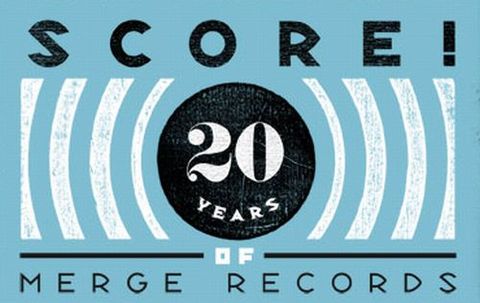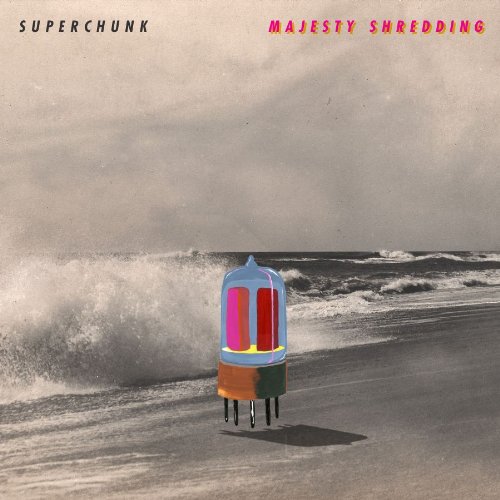I arrived late to the Superchunk party. So late that in October of 2010 when I was just getting into them I missed what will probably be their last show in Portland for several years. The reason? My wife and I had attended over 20 concerts that year and had just spent the last weekend in Seattle seeing Corin Tucker on Friday and Guided By Voices the next night. She was getting over an awful cold and I was feeling concert burn out. Still though - stupid, stupid, stupid, stupid, stupid.
It's difficult to name a band with a more profound impact on the past two decades of rock music than Superchunk. As the music industry continues to implode "indie rock" has slowly become the new mainstream - and believe it or not - Superchunk practically invented "indie rock". Yes, bands like R.E.M. were part of an active college rock scene the previous decade - and yes, a burgeoning Hardcore scene in the 80's and 90's proved that bands could make a decent living running their own labels but what Superchunk did was different.
In addition to producing an excellent body of work from No Pocky for Kitty to Majesty Shredding founding members Laura Ballance and Mac McCaughan's Merge Records label also released some of the most influential records of the past 20 years. From Butterglory to Neutral Milk Hotel, from Stephen Merritt and the Magnetic Fields to the Arcade Fire, from Wild Flag to She & Him I would argue that - among independent labels - Merge Record's roster is unequaled in terms of influence and popularity. Only Matador Records should be considered a true peer of Merge and unlike Matador, Merge never really cashed in - preserving the integrity that originally attracted all of these artists to the label in the first place.
Yet, Superchunk is so much more than Merge Records. I first fell in love with Superchunk after months of listening to their 2010 record Majesty Shredding. Sure, I had heard of them. At that point I was already a huge Best Show on WFMU fan of which drummer Jon Wurster was a regular caller. Almost immediately I took to Majesty Shredding in the same way as many of my other favorite albums. It is, in some ways, a perfect album. Incredibly tight, exuberant, well produced and laden with massive pop hooks Majesty Shredding is pop-punk comfort food. And I love comfort food. Since moving to the outer edge of Portland my wife and I have found ourselves in something of a culinary wasteland. But its not 50 dollar meals or Vegan Thai food that I crave after a few beers while watching a Blazer game. Nope, its a grilled cheese sandwich a burrito or a decent piece of pizza. By that analogy, Majesty Shredding is some sonic combination of grilled cheese pizza stuffed in a burrito and deep fried. An artisinal Hot Pocket, if you will. Take the surf rock intro-ed "Learned to Surf"
Superchunk - Learned to Surf from Merge Records on Vimeo.
It's certainly nothing revolutionary or complex. But neither was Motown, the Beach Boys or The Ramones for that matter.
Bands these days are increasingly dependent on concert related revenue and selling tickets can be a hard thing to do when you don't have a new record out. This financial pressure has stunted the development of many of this era's finest bands. Take The Hold Steady, for example.
I was convinced that The Hold Steady would be the closest thing I would see to another Bruce Springsteen in my lifetime. Everything from the internal religious geography that singer Craig Finn referenced to their stellar live show to the fact that their band even used piano prominently led many critics to liken them to Springsteen and assessment resonated with me strongly. I felt like Separation Sunday showed the depth, complexity and eccentricity that Springsteen's sophomore album The Wild, The Innocent and The E Street Shuffle did. The comarison seemed even more legitimate when, like Born to Run, their next album Boys and Girls in America was an exhilarating ride through american iconography and a bonafide instant classic that exposed them to a larger audience. Sadly, sometime in 2007 this parallel trajectory ended. A lawsuit kept Springsteen out of the studio for almost 2 years and that exile culminated in the release of the bleak, taught, ferocious fan favorite Darkness On The Edge Of Town. In contrast, there was little respite for Finn and company. They were in the studio less than a year after Boys and Girls and the result - 2008's Stay Positive feels like More Boys and Girls In America. There was some token sonic exploration on their next album, 2010's Heaven is Whenever - but its most popular song "The Weekenders" not only sounded like a retread of Boys and Girls, the lyrics revisited characters from one of the album's finest tracks "Chips Ahoy" - hardly a step forward.
Majesty Shredding on Spotify





No comments:
Post a Comment